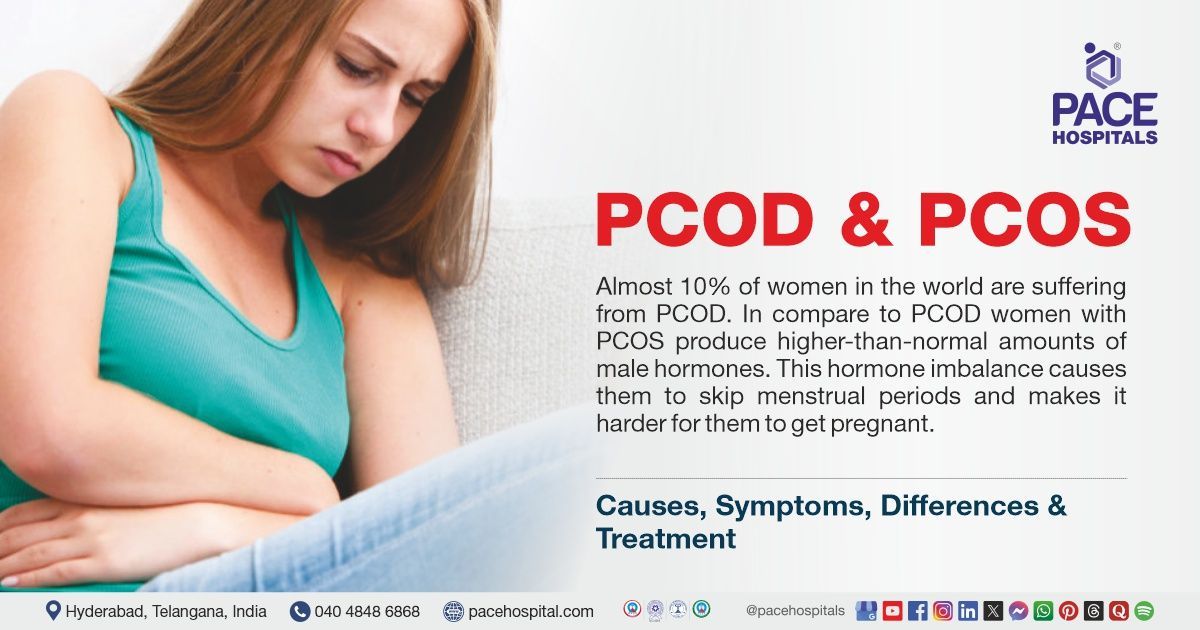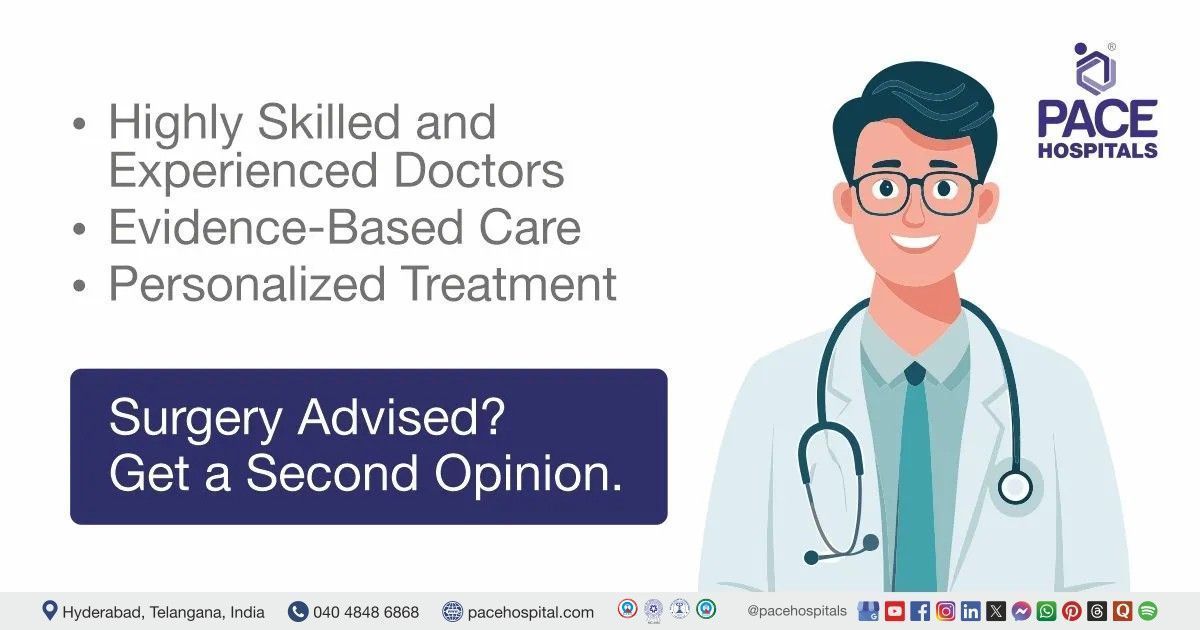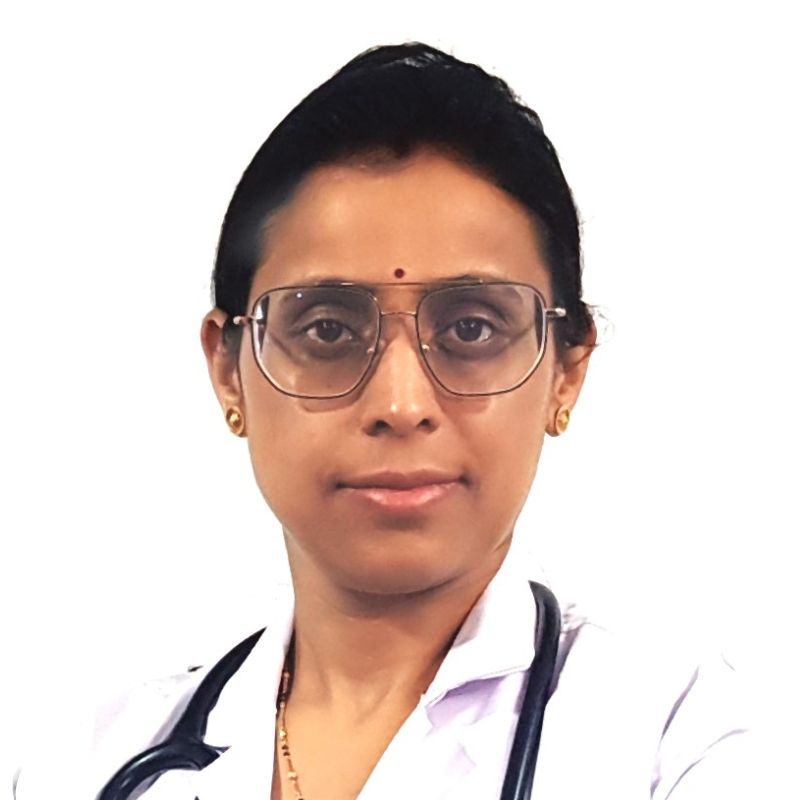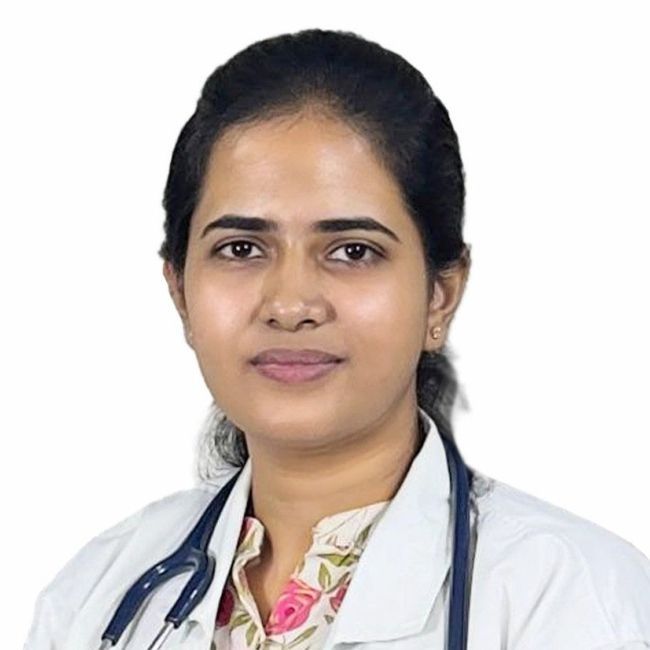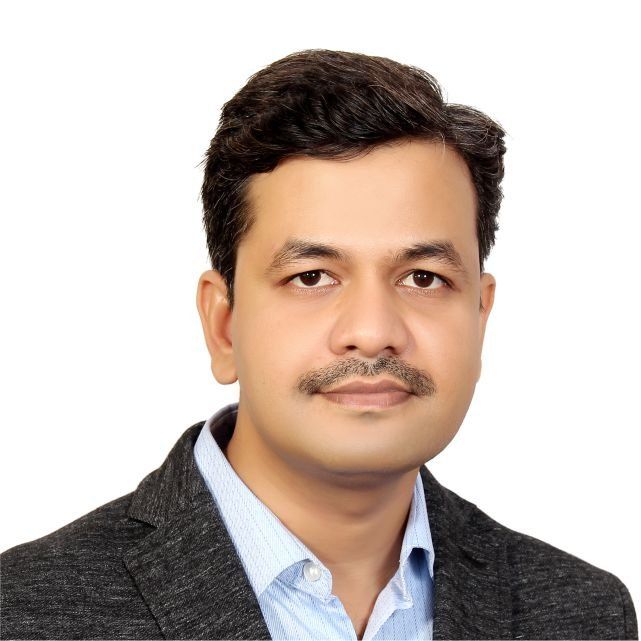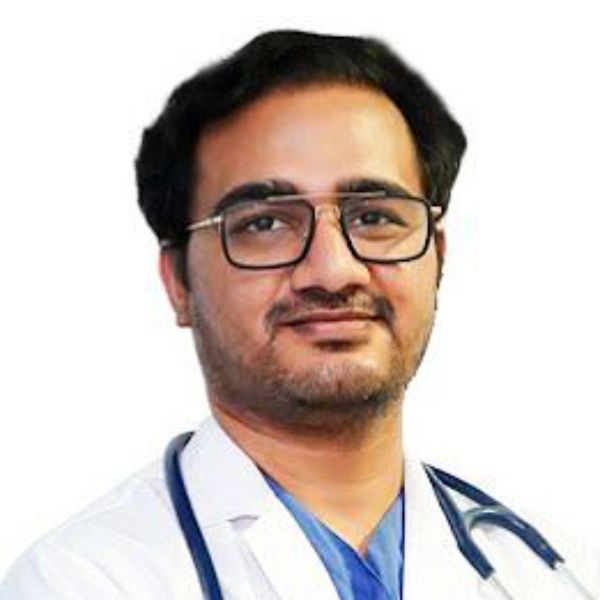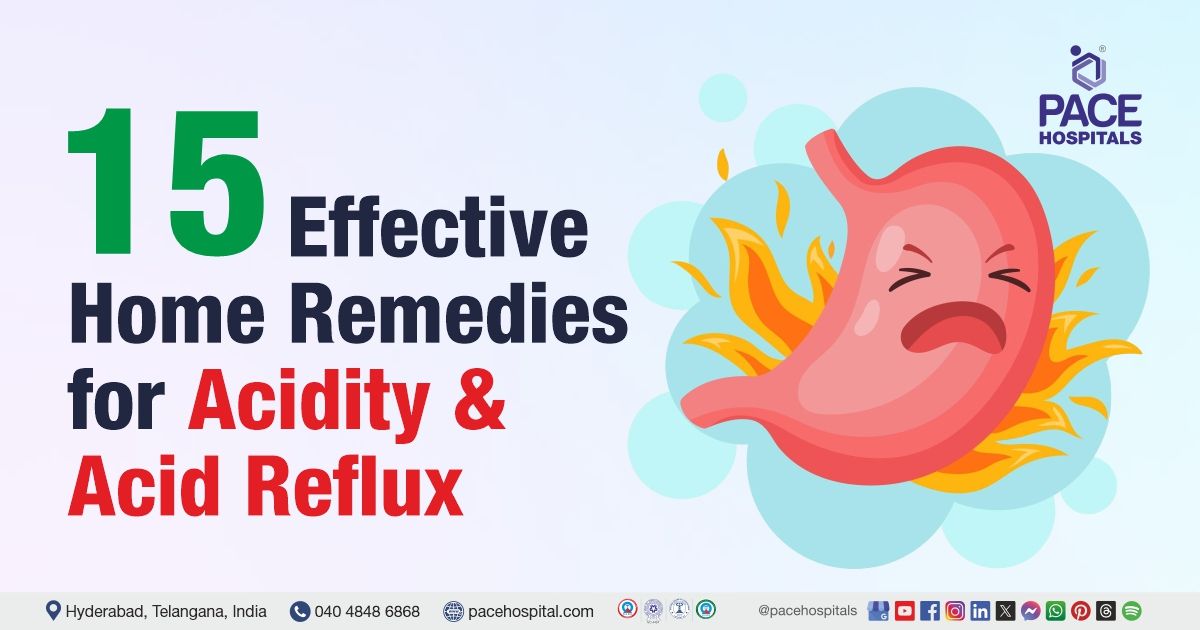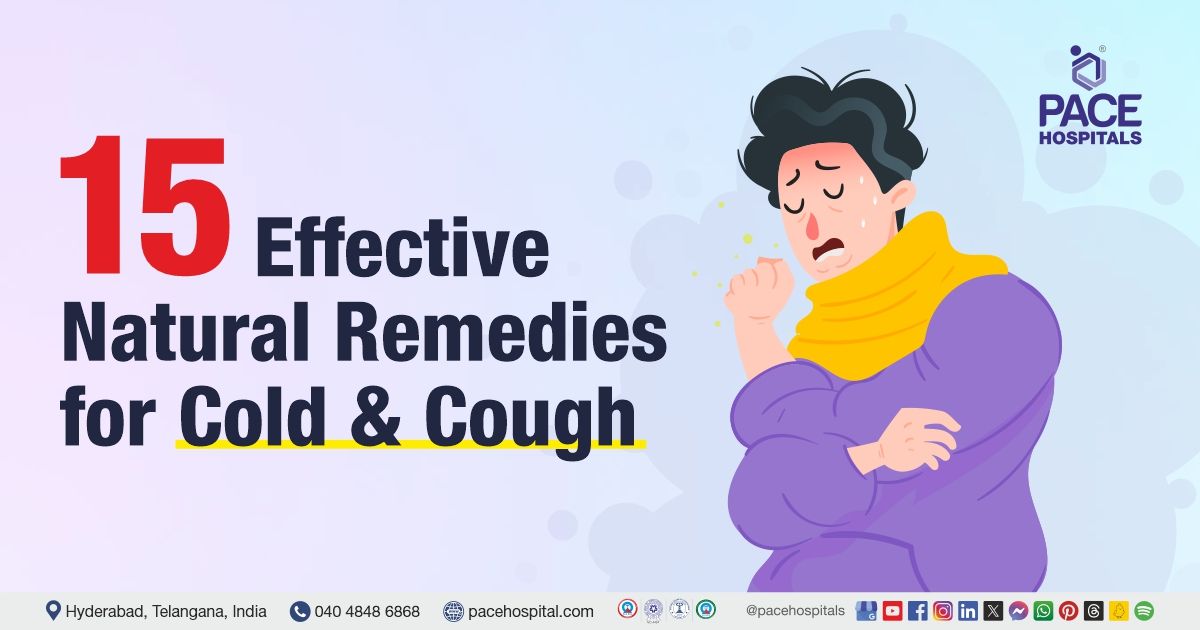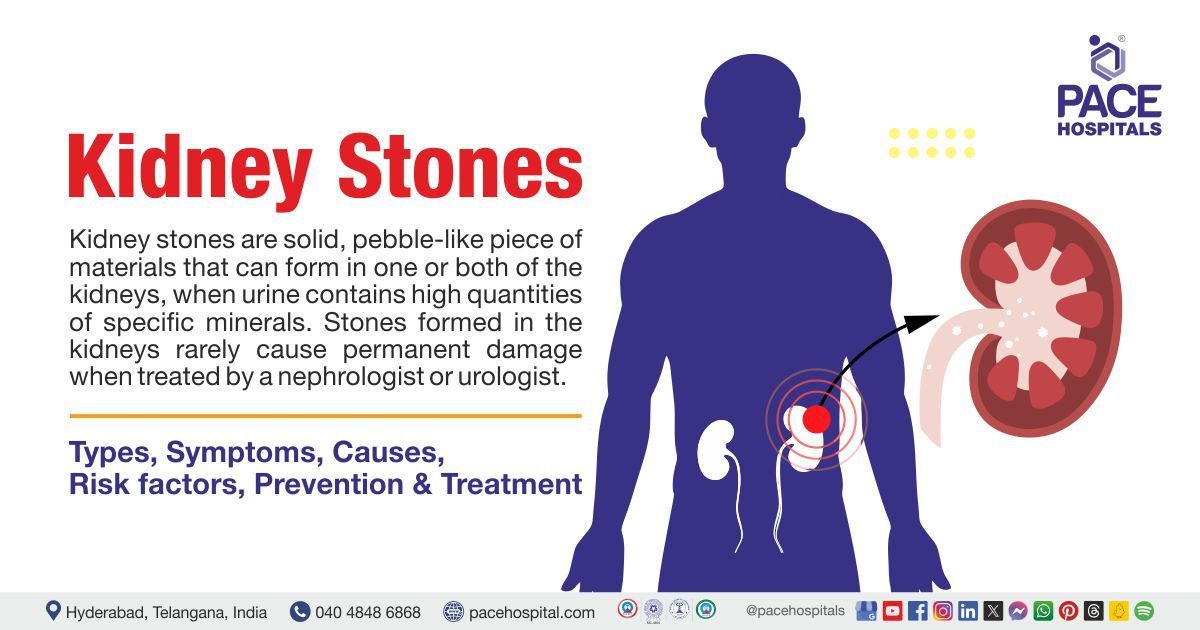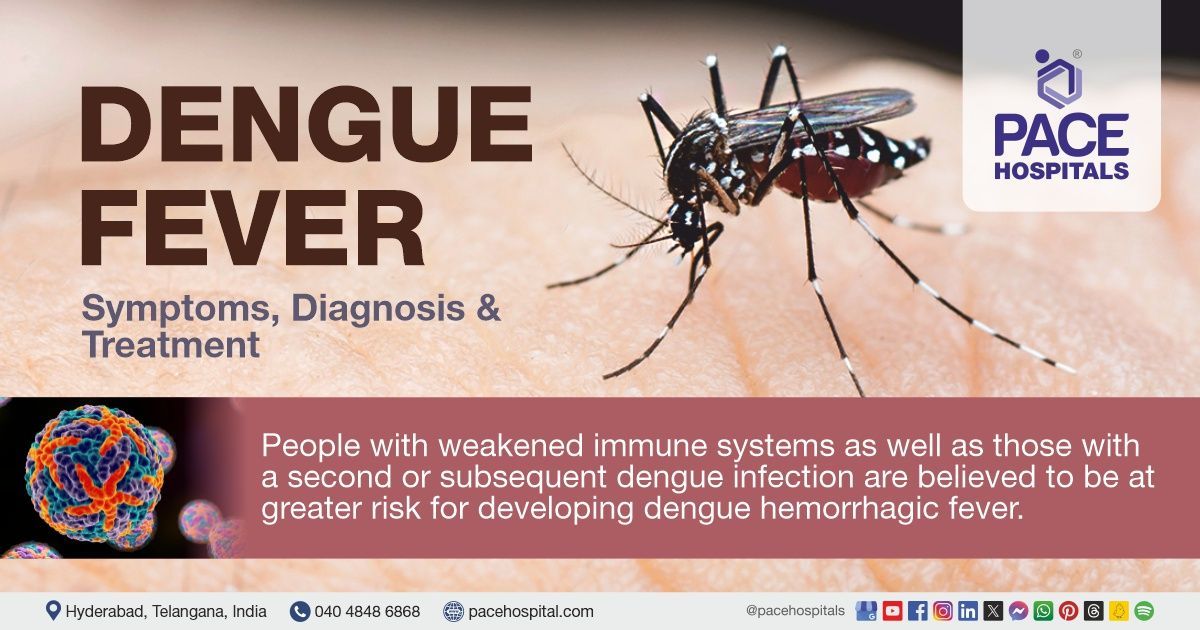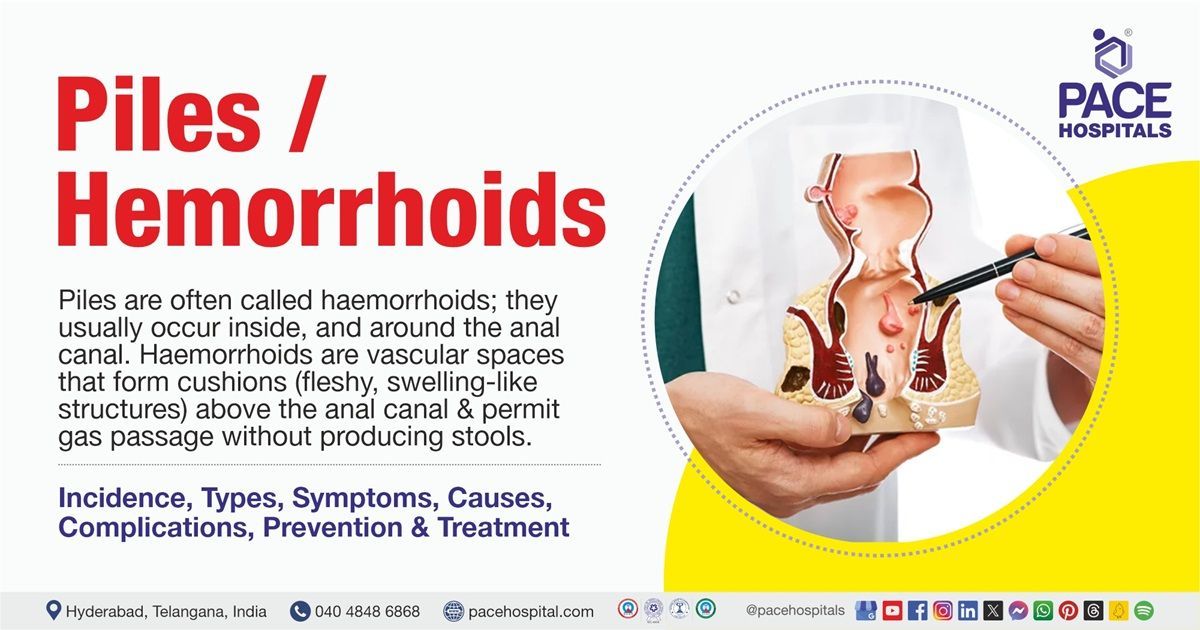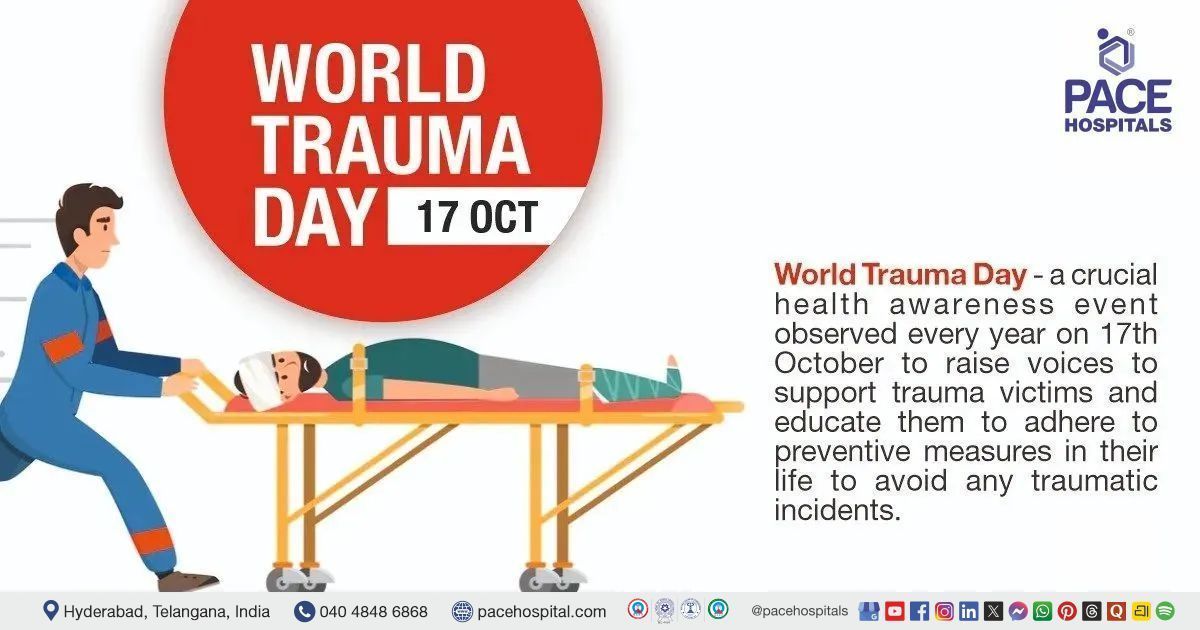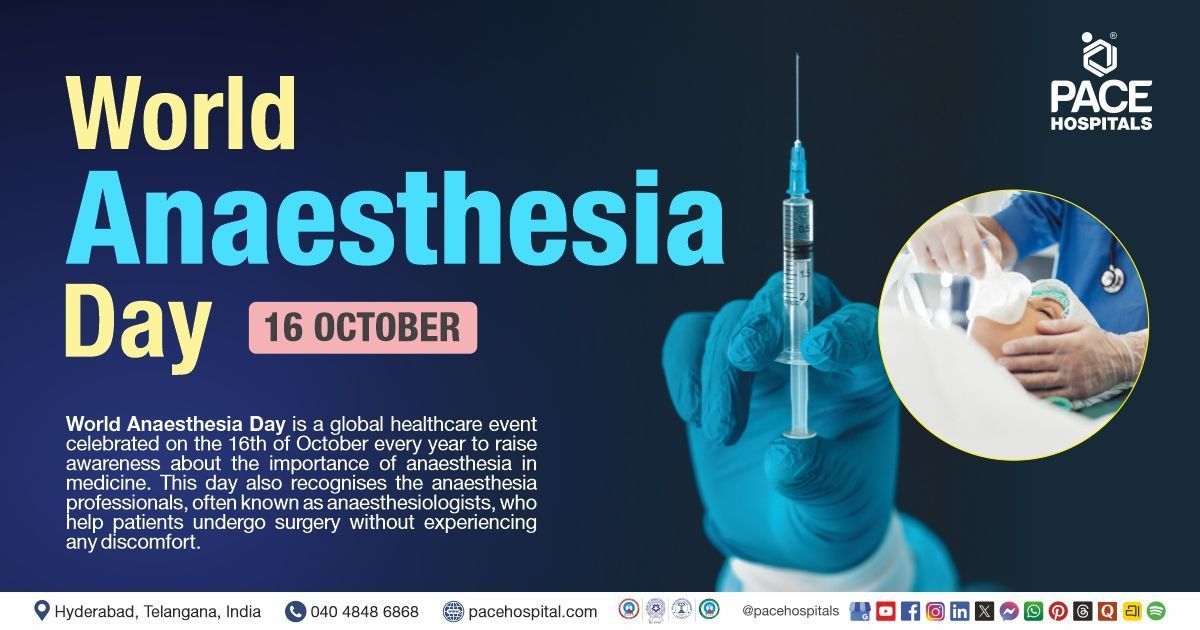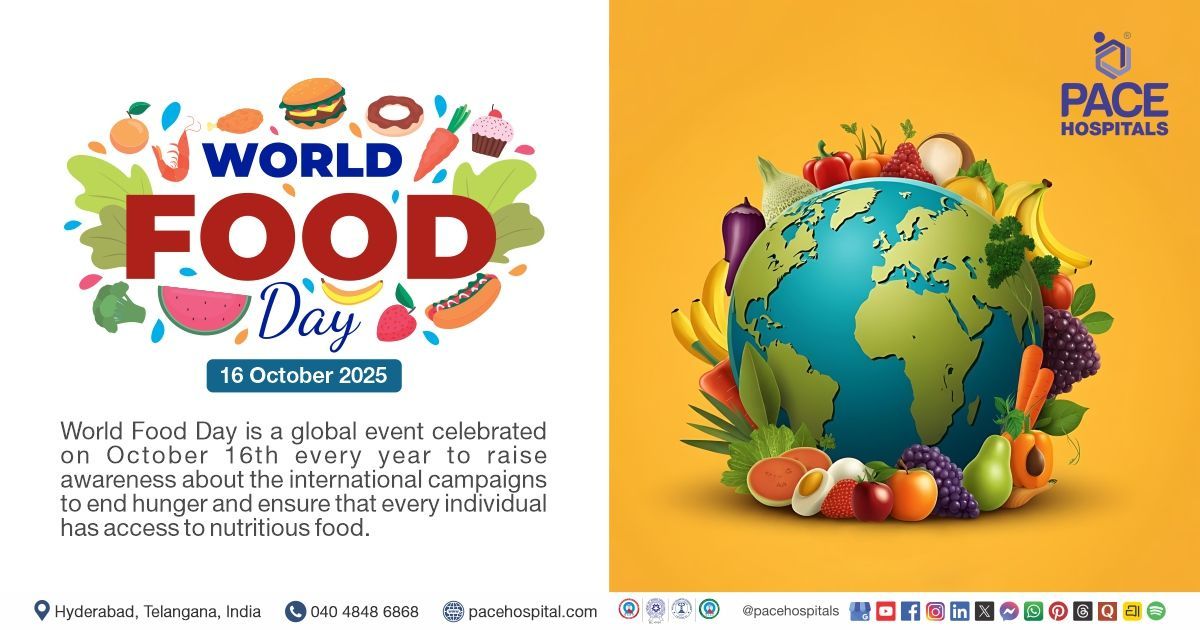Best Hypertension Specialists in Hyderabad for Blood Pressure Treatment
✅ Recommended by 9,452 Happy Patients. Get hassle-free appointments with blood pressure specialist doctor.
Dr. Mounika Jetti
MBBS, MD (General Medicine)
Experience : 9+ years
Consultant General Physician and Diabetologist
Specialist
Hypertension (high blood pressure), Thyroid disorders, Diabetes, Obesity, Weight loss, Infectious diseases, Autoimmune diseases, Immunisation protocols, Anaemia, Cardiac and Renal issues and many other general conditions.
Expertise
High blood pressure treatment and management, Chronic disease management, Treatment of diabetes and its complications, Fever of unknown origin (FUO), thyroid disorders, dyslipidemia, tuberculosis, anaemia, asthma, obesity, COPD, lifestyle disorders, HIV and Its management, innovative treatment approaches and preventive healthcare strategies.
Consultation Details
Languages Spoken: English, Hindi, Telugu
Timing: Mon to Sat - 11 AM to 8 PM
Location: PACE Hospitals, HITEC City
Dr. Tripti Sharma
MBBS, MD (General Medicine), DM (Endocrinology, Diabetes & Metabolism)
Experience : 14+ years
Endocrinologist (Adult & Paediatric), Physician & Diabetologist
Specialist
Hypertension caused by hormonal imbalances, Diagnosing and treating various endocrinology-related health conditions such as thyroid disorders (hypothyroidism, hyperthyroidism, and goitre), diabetes (type 1 diabetes mellitus, type 2 diabetes mellitus, and gestational diabetes), adrenal disorders (Cushing’s syndrome and Addison’s disease), pituitary gland disorders (acromegaly, prolactinoma, growth hormone deficiency, etc.), infertility (male and female), hypertension, obesity, dyslipidaemia, osteoporosis, puberty and growth disorders, polycystic ovary syndrome, hypogonadism, menstrual and other hormonal disorders.
Expertise
Management of Fever of unknown origin, Management of Sepsis & Multiorgan failure, Diabetes mellitus, Hypertension, Thyroid Disorder, Pregnancy Induced Hypertension, Dyslipidemia & hyperlipidemia, Anaemia management, Weight loss & Fatigue Syndromes, HIV treatment, Lung diseases (Asthma, Empyemathorasis, Bronchiectasis Treatment, Interstitial Lung Disease Treatment), Allergy and Immunological Disorders, Anaemia and Blood Disorders, Rheumatology and Joint Related Disorders, COVID-19 / Swine Flu, Endocrinological Disorders, Cardiac problems, Liver & Kidney disorders, Infectious disease, Autoimmune disease, Haematological disorders, Malabsorption syndromes, Weight Reduction management, Diagnostic Dilemmas, Pyrexia of unknown origin (PUO)
Consultation Details
Languages Spoken: English, Hindi, Telugu
Timing: Mon to Sat - 9 AM to 5 PM
Location: PACE Hospitals, HITEC City
Dr. Snigda Panuganti
MBBS, MD (General Medicine)
Experience : 7+ years
Consultant General Physician and Diabetologist
Expertise
Dr. Snigda Panuganti specializes in diagnosing and managing a wide range of acute and chronic health conditions, including:
- Diabetes & Lifestyle Diseases (Hypertension, Dyslipidemia, Obesity)
- Thyroid Disorders (Hypothyroidism, Hyperthyroidism)
- Electrolyte & Metabolic Disturbances
- Anaemia & Thrombocytopenia
- Chronic Kidney Disease (CKD) & Acute Kidney Injury (AKI)
- Heart Failure, Atrial Fibrillation & Deep Vein Thrombosis (DVT)
- Stroke Recovery & Geriatric Medicine
- Chest Infections, Pneumonia & Tuberculosis
- Tropical & Infectious Diseases (Dengue, Malaria)
- Gastrointestinal & Urinary Tract Infections
- GERD, Headaches & Fatigue Syndromes
- Seizure Disorders
- Fever of Unknown Origin (PUO)
- Multi-Organ Dysfunction & Critical Illness
- Sepsis & Systemic Infections
Procedure
With 7+ years of experience, Dr. Snigda Panuganti provides expert care in:
- Acute & Inpatient Medical Care
- Multimorbidity & Elderly Care Management
- Preventive Medicine & Adult Vaccination
- Critical Illness & Emergency Management
- Diagnostic Evaluation of Complex Cases
- Chronic Disease Management & Follow-Up Care
- Lifestyle & Weight Management Programs
- Patient Education & Health Counselling
Consultation Details
Languages Spoken: English, Hindi, Telugu
Timing: Mon to Sat - 10 AM to 7 PM
Location: PACE Hospitals, HITEC City
Dr. A Kishore Kumar
MD (Medicine) (JIPMER), DM (Nephrology) (AIIMS, New Delhi)
Experience : 11+ years
Consultant Nephrologist and Renal Transplant Physician
Expertise
Hypertension treatment associated with kidney complications and prevention of kidney damage, Kidney Transplantation, Glomerular Disease, Chronic Kidney Disease, Acute Kidney Injury, Hemodialysis, Peritoneal Dialysis, Autoimmune Kidney Diseases, Genetic Kidney Diseases, Critical Care Nephrology
Procedure
Permcath Insertions, Kidney Biopsy, Peritoneal Dialysis Catheter Insertion
Consultation Details
Languages Spoken: English, Hindi, Telugu
Timing: Mon to Sat - 9 AM to 6 PM
Location: PACE Hospitals, HITEC City
Dr. Seshi Janjirala
MBBS, DNB (General Medicine), DM (Cardiology), Certified ROTA Operator (Mount Sinai, Newyork), Certified TAVI Operator (UMC, Astana)
Experience : 13+ years
Consultant Interventional Cardiologist, Specialist in Endovascular Procedures
Specialist
Hypertension, cardiovascular and blood vessel-related diseases that include rare and congenital conditions such as Heart failure, Arrhythmias, Coronary artery disease, Septal defects (ventricular/ atrial), Coarctation of the aorta, Myocarditis, Pulmonary atresia, Tricuspid atresia, Myocardial infarction, Atherosclerosis, Uncontrolled hypertension, Valvular heart disease, Cardiogenic shock, Peripheral artery disease, Acute coronary syndrome, Truncus arteriosus, Emergency care (Heart Attack, and Chest pain), cardiogenic shock, Recurrent symptomatic ventricular tachycardia & Complete Heart Block, sudden cardiac arrest etc.
Expertise
Managing hypertension and complications of heart disease, advanced endovascular procedures, including Penumbra and Angiojet techniques for DVT management, as well as the placement of IVC filters and stents for both peripheral and central arterial and venous issues, single and double chamber devices, ICDs, and CRT-D systems, non-surgical closure techniques for atrial and ventricular septal defects and PDA closures using device-based interventions, enabling less invasive treatment options for patients.
Consultation Details
Languages Spoken: English, Hindi, Telugu
Timing: Mon to Sat - 9 AM to 6 PM
Location: PACE Hospitals, HITEC City
Dr. Sai Ramakrishna O
MBBS, MD (General Medicine)
Consultant General Physician & Diabetologist
Specialist
Diabetes, Hypertension, Thyroid Disorders, Fever management, Malabsorption syndromes, Headache & Migraines, Obesity, Autoimmune diseases, Anaemia and Blood Disorders, and Infectious diseases
Expertise
Management of Fever of unknown origin, Management of Diabetes mellitus, Hypertension, Sepsis & Multiorgan failure, Thyroid Disorder, Pregnancy Induced Hypertension, Anaemia management, Weight loss & Fatigue Syndromes, Dyslipidemia & hyperlipidemia, HIV treatment, Lung diseases (Asthma, Empyemathorasis, Bronchiectasis Treatment, Interstitial Lung Disease Treatment), Allergy and Immunological Disorders, Anaemia and Blood Disorders, Rheumatology and Joint Related Disorders, COVID-19 / Swine Flu, Endocrinological Disorders, Cardiac problems, Liver & Kidney disorders, Infectious disease, Autoimmune disease, Haematological disorders, Malabsorption syndromes, Weight Reduction management, Diagnostic Dilemmas, Pyrexia of unknown origin (PUO)
Consultation Details
Languages Spoke: English, Hindi, Telugu
Timing: Mon to Sat - 9 AM to 6 PM
Location: PACE Hospitals, Madinaguda
Leading Hypertension Doctors in Hyderabad offering Personalized Care
At PACE Hospitals, we have a team of the best hypertension specialist doctor in Hyderabad, India; who are dedicated to providing comprehensive and personalized care for patients with high blood pressure. Our team of doctors including general physicians, nephrologists, endocrinologists and cardiologists are highly trained and experienced in managing hypertension, and they use the latest diagnostic tools and treatments to help patients achieve and maintain healthy blood pressure levels.
Our team of blood pressure specialist doctor take a holistic approach to patient care, addressing not only the physical symptoms of high blood pressure but also the underlying lifestyle and environmental factors that can contribute to the condition. They work closely with patients to develop customized treatment plans that may include medication, lifestyle modifications, and education on how to manage hypertension effectively.
At PACE Hospitals, we understand that managing hypertension can be challenging, and we are committed to supporting our patients every step of the way. Our state-of-the-art facilities and compassionate staff provide a comfortable and welcoming environment for patients, and we strive to make the diagnostic and treatment process as smooth and stress-free as possible. At PACE Hospitals, patients can be assured of compassionate care and expert high blood pressure treatment.
If anyone looking for the best blood pressure doctor in Hyderabad, India can request an appointment with our team of experts, they are here to help manage high blood pressure and improve overall health and well-being.
Frequently Asked Questions (FAQs) on Hypertension (High Blood Pressure)
Can hypertension be cured, or is it a lifelong condition?
High blood pressure (hypertension) cannot be cured but it can be managed, and the progression of disease and complications can be prevented. With the use of certain drug classes that reduce blood pressure and through some lifestyle modifications hypertension can be managed.
How does a sedentary lifestyle contribute to hypertension risk?
Sedentary lifestyle or sedentary behavior is a known risk factor for high blood pressure. It is accompanied by a range of cardiometabolic factors like increased levels of glycated hemoglobin, resistance of insulin, obesity, high cholesterol. It is a risk factor for hypertension but does not have a direct effect on blood pressure.
What are the common signs of hypertension?
Individuals with extreme hypertension may show symptoms such as headache, dizziness, pain in chest area, breathing difficulty, vomiting, nausea, vision changes or vision loss, confusion, anxiety, nose bleeds, abnormal heart rhythm (arrythmias).
What are the most common complications of untreated hypertension?
High blood pressure (hypertension) that is not treated for a long time can lead to severe complications such as coronary heart disease (CHD), myocardial infarction (MI), stroke, acute or chronic renal failure, atrial fibrillation, aortic aneurysm and death.
Can high blood pressure lead to stroke, if so how?
Yes, long term hypertension can lead to stroke. When the blood vessels get narrowed, these narrowing of blood vessels causes blockage of supply of oxygen and blood to brain resulting in brain stroke. High blood pressure damages the arteries, weekend or blocked arteries in brain may burst or clog creating higher risk for stroke.
How common is hypertension in India?
About 90 percent of adults in India are hypertensive, they are either not diagnosed, or not treated or treated but with uncontrolled diabetes. Studies reported that 33 percent of people from urban areas are hypertensive and of these people about 42 percent of them are not aware that they have hypertensive and 25 percent of rural people are hypertensive.
What are the primary risk factors for developing hypertension?
Primary risk factors of hypertension include smoking, tobacco chewing, excessive alcohol consumption, obesity or overweight, sedentary lifestyle, high salt intake, family history of hypertension, unhealthy lifestyle.
Does family history influence the risk for hypertension?
Results of many studies indicated that in adults’ presence of family history in parents, siblings and grandparents all are associated with increased risk of developing hypertension. Thus, family history has an influence on hypertension.
What is the relationship between age and hypertension risk?
With increasing age, changes in heart, vascular system, autonomic nervous system occurs which in turn increases blood pressure. This elevation in blood pressure is due to complex components which not only includes aging factors but also includes environmental and lifestyle factors.
Does sleep apnea contribute to the risk of high blood pressure?
Sleep apnea is a definite risk factor of high blood pressure. Episodes of sleep apnea causes an increase in systolic and diastolic blood pressure that gives an average elevation of blood pressure at nighttime.
Can chronic stress increase the risk of hypertension?
Chronic stress can cause high blood pressure by consistent blood pressure elevations, it also stimulates the nervous system to release excessive amounts of vasoconstrictors hormones that increase blood pressure. Studies indicated that stress does not directly cause hypertension, but it has an impact on blood pressure.
What symptoms might indicate a hypertensive crisis?
Severe headache, dizziness, impaired mental status, pain in chest, shortness of breath, reduced urine output, nausea, vomiting, impaired vision are symptoms that indicate hypertensive crisis.
Is it possible to experience nose bleeds due to high blood pressure?
The role or impact of high blood pressure (hypertension) in nose bleeds (epistaxis) is undetermined. It is possible that high blood pressure can increase susceptibility of nose bleeds but there is no evidence that hypertension can cause nose bleeds.
What are some subtle signs of hypertension that people often overlook?
Subtle signs of hypertension include:
- Feeling tired all the time: High blood pressures causes damage to arteries carrying blood to heart, this causes heart to work harder thus patient with hypertension feels tired all the time.
- Blood spots in eye: Damage to blood vessels in arteries due to high blood pressures causes burst of the tiny blood vessels in eyes. It bleeds and thus looks like a red spot.
- Dizziness: It is associated with high blood pressure and dizziness related with trouble walking can be sign of stroke.
How does hypertension contribute to kidney damage?
Due to high blood pressure, the blood vessels in the kidney get damaged and cause narrowing of blood vessels. This narrowing or thickening of walls of blood vessels reduces blood flow to kidney thereby reducing kidney function. Excess amount of waste gets accumulated in the body due to kidneys not functioning properly. This can worsen with time and lead to kidney failure.
What impact does high blood pressure have on vision and eye health?
High blood pressure has intense effects on various parts of eye and it also affects vision. Increased blood pressure leads to events of retinal microvascular changes called hypertensive retinopathy, which is comprised of retinal artery narrowing, retinal hemorrhage and in severe cases macular edema. Hypertension also leads to development and progression of diabetic retinopathy. It also increases the risk of developing glaucoma and causes vision loss.
How does hypertension affect the arteries and vascular health?
Consistent high blood pressure causes damage to the walls of blood vessels, this results in tiny tears at the damaged area. Various components from body fluid such as cholesterol and fat accumulate at these damaged spots. Buildup of plague results in narrowing of arteries called atherosclerosis.
Can high blood pressure increase the risk of dementia or cognitive decline?
Yes, high blood pressure increases the risk of dementia. Many research studies have demonstrated that individuals who had high blood pressure in their mid-life (aged between 40-64 years) have higher risk and are likely to develop hypertension.
Can long term hypertension affect sexual health?
Yes, high blood pressure affects sexual health. Men with high blood pressure are twice likely to develop erectile dysfunction due to disrupted penile blood flow compared to those men with normal blood pressure. Due to high blood pressure walls of artery get damaged, narrowed and thickened. Due to this thickening of artery walls blood supply to penis is reduced causing erectile dysfunction.
Can high blood pressure complicate diabetes management?
Yes, high blood pressure can affect the management of diabetes and lead to severe complications. Coexistence of hypertension and diabetes in an individual lead to complications such as cardiovascular disease, cerebrovascular accident, retinopathy (damage to the retina) and nephropathy (damage to kidneys).
Can high blood pressure lead to complications during pregnancy?
Yes, high blood pressure leads to severe complications during pregnancy. Complications include eclamptic seizures, pulmonary edema (buildup of fluids in lungs), renal failure, hemolysis, liver injury, coagulopathy, placental abruption (separation of placenta and uterus), poor fetal growth (due to lack of oxygen and nutrients), preterm birth, damage of kidney, liver and other organs of the mother.
Can hypertension complicate surgery?
Yes, hypertension can complicate surgery. High blood pressure increases the risk of occurrence of cardiovascular events, cerebrovascular events, causes bleeding and even death during preoperative and postoperative time. The higher the blood pressure, greater the risk for complications during surgery.
How is hypertension diagnosed?
Hypertension is diagnosed by the following procedures.
- Blood pressure measurements: European Society of Cardiology (ESC) suggests three office blood pressure measurements with a time gap of 1 to 2 minutes. If difference between initial 2 readings is greater than or equal to 10mmHg blood pressure is recorded as average of two readings. For this diagnostic procedure to perform effectively proper technique to be followed and the patient should remain calm and seated for 5 min before blood pressure is monitored.
- Evaluation tests for signs of organ damage include ECG (to record cardiac rate), fundoscopy (to look for retinopathy), blood test (blood count, creatinine, HbA1c, blood cholesterol levels, serum uric acid).
What is considered a normal blood pressure reading?
Blood pressure is considered to be normal when systolic pressure is less than 120mmHg and diastolic pressure measures less than 80mmHg. Consistent or repeated systolic readings of 130 mmHg or higher and diastolic readings of 80mmHg or higher is considered to be high blood pressure or hypertension.
Are there any specific lab tests required to diagnose hypertension?
Specific laboratory test that diagnose hypertension are urinalysis (to detect kidney damage), blood chemistry (to detect levels of sodium, potassium, creatinine, glucose), ECG (measures electrical activity of heart and finds out if hypertension is caused by heart problems), fundoscopy (to evaluate retinopathy).
What is a hypertensive emergency, and how is it diagnosed?
Hypertensive emergency is an acute, noticeable rise in blood pressure that is accompanied by signs of target organ damage. It includes pulmonary edema (fluid buildup in lungs), cardiac ischemia (blockage of oxygen and blood to heart muscle neurologic deficits, acute renal failure and eclampsia (seizures in pregnant women).
It is diagnosed by a few labs test such as urinalysis, B-natriuretic peptide and cardiac enzymes. If a patient is suspected of cardiac ischemia ECG is recommended, X ray suggested if there is shortness of breath. CT (Computed Tomography) angiography is suggested to confirm dissection and to observe the extent or degree of intimal tear.
What are the treatment options available for hypertension?
Hypertension treatment or high blood pressure is managed by lifestyle modifications and with use of certain medications, with early diagnosis allowing lifestyle changes to potentially lower blood pressure without drug therapy.
Lifestyle modifications:
- Avoiding or limit alcohol consumption
- Physical Activity: Engaging in various physical activities lowers blood pressure, and reduces cardiovascular risk.
- Maintaining Body weight: Obese or overweight patients should aim for 5 to 10 percent weight reduction over a period of 6 months. Weight reduction lowers blood pressure.
- Avoid smoking
- Stress management: Learning how to manage stress and coping with problems can improve mental and physical health along with lowering high blood pressure.
- Adapting to healthy sleeping habits is recommended. Sleeping for 7 to 9 hours, sleeping and waking up at regular time has a major impact on overall health.
Medications:
- Having a healthy lifestyle is not sufficient, patients need certain medications to lower hypertension. Commonly prescribed drug classes that lower high blood pressure is angiotensin converting enzyme inhibitors, angiotensin II receptor blockers, beta blockers and diuretics.
What our patients have to say
Related Articles
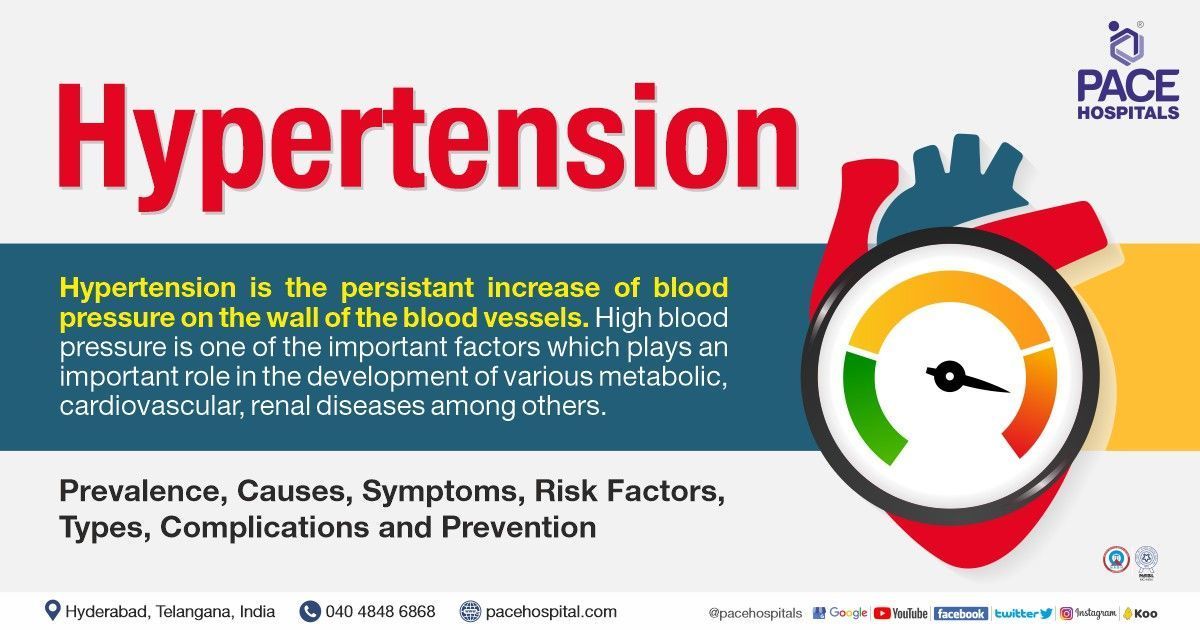
Why choose PACE Hospitals?
- A Multi-Super Speciality Hospital.
- NABH, NABL, NBE & NABH - Nursing Excellence accreditation.
- State-of-the-art Liver and Kidney transplant centre.
- Empanelled with all TPAs for smooth cashless benefits.
- Centralized HIMS (Hospital Information System).
- Computerized health records available via website.
- Minimum waiting time for Inpatient and Outpatient.
- Round-the-clock guidance from highly qualified super specialist doctors, surgeons and physicians.
- Standardization of ethical medical care.
- 24X7 Outpatient & Inpatient Pharmacy Services.
- State-of-the-art operation theaters.
- Intensive Care Units (Surgical and Medical) with ISO-9001 accreditation.
Share on
Request an appointment
Fill in the appointment form or call us instantly to book a confirmed appointment with our super specialist at 04048486868
Appointment request - health articles
Popular Articles
